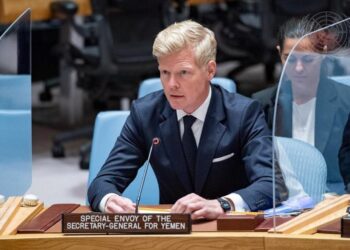Israel has approved the establishment of three illegal outposts in the occupied West Bank, a move that has drawn condemnation from the US and human rights groups.
On Wednesday, the head of the Israeli Military’s Central Command, Major General Yehuda Fuchs, signed orders that defined the municipal boundaries of the outposts of Avigail, Asael and Beit Hoglah, effectively turning them into settlements recognized by Israel, but not by the international community.
The outposts, which were built without Israeli government authorization and are considered illegal under both Israeli and international law, are located deep inside the West Bank, on land that Palestinians claim for their future state.
The decision was part of a deal that Prime Minister Benjamin Netanyahu made with the far-right Religious Zionism party in February to secure its support for his coalition government. The party, led by Finance Minister Bezalel Smotrich, who is himself a settler, has pushed for the legalization of nine outposts in total.
The US State Department expressed its strong opposition to Israel’s move, saying it undermined the prospects for a two-state solution to the Israeli-Palestinian conflict.
“We strongly oppose the advancement of settlements and the retroactive legalization of settlements that were previously illegal under Israeli law and urge Israel to refrain from this activity,” a State Department spokesperson told Middle East Eye.
The spokesperson added that expanding settlements “undermines the geographic viability of a two-state solution, exacerbates tensions, and further harms trust between Israelis and Palestinians”.
Normalization
The US has also been trying to persuade Saudi Arabia to normalize relations with Israel, following the example of four other Arab countries that signed agreements with Israel last year under the auspices of the Trump administration. However, Saudi Arabia has insisted that any normalization must be based on the 2002 Arab Peace Initiative, which calls for Israel to withdraw from the occupied territories and allow the creation of a Palestinian state.
Human rights groups also denounced Israel‘s approval of the outposts, saying it violated international law and Palestinian rights.
“Israel’s decision to legalize three outposts is yet another step in its ongoing policy of creeping annexation of the West Bank,” said Omar Shakir, Israel and Palestine director at Human Rights Watch.
“By granting official status to these illegal settlements, Israel is entrenching its control over Palestinian land and resources, while denying Palestinians their basic rights and freedoms,” he added.
According to Peace Now, an Israeli anti-settlement watchdog, the three outposts have a total of 141 housing units built on 183 dunams (45 acres) of land, some of which is privately owned by Palestinians. The new municipal boundaries will expand their area to 1,262 dunams (312 acres), making them more than six times larger than their current size.
Peace Now said that legalizing the outposts would pave the way for more construction and development in these areas, as well as increase the isolation and fragmentation of Palestinian communities.
“Legalizing outposts is a cynical exploitation of the law for political purposes,” said Hagit Ofran, director of Peace Now’s Settlement Watch project.
“It is a slap in the face of the Biden administration and a clear message from Netanyahu that he is not interested in peace or human rights, but only in expanding settlements at any cost,” she said.







